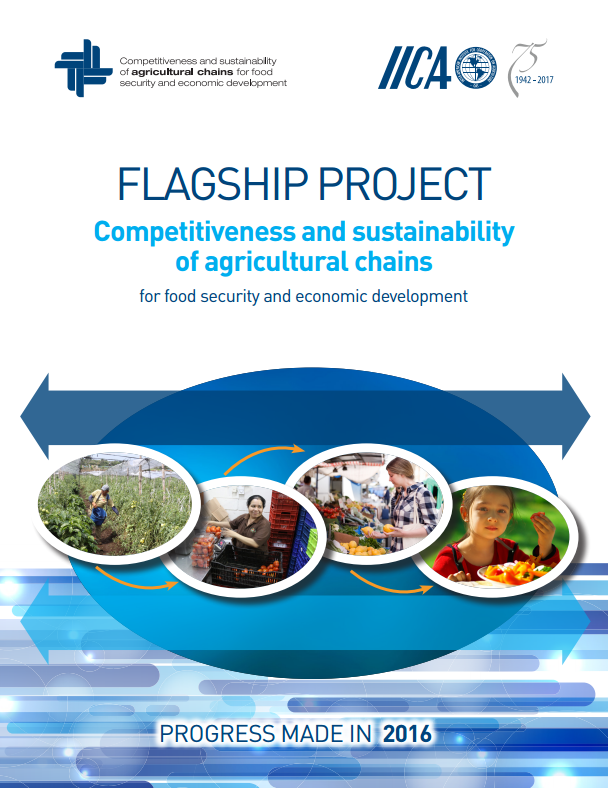A new document systematizes the contributions made in 2016 by the institutional Flagship Project responsible for fostering progress in this topic.

San José, 19 June 2017 (IICA). Integrated work in 14 prioritized agricultural chains and specific actions in 32 chains in 29 countries in the Americas; training initiatives geared toward 6,256 public and private stakeholders; and 237 technical cooperation products: these are just a few examples of the work that the Inter-American Institute for Cooperation on Agriculture (IICA) has conducted in the area of competitiveness and sustainability of agricultural chains, for the benefit of countries in the hemisphere.
The abovementioned results are part of the progress made in 2016 by the Flagship Project (FP) entitled “Competitiveness and sustainability of agricultural chains.” This FP is one of the instruments through which the Institute drives agricultural development in its 34 member countries.
Policy management, capacity-building at the public and private levels, and support for technological, business, institutional and commercial innovation processes have played a key role in the achievement of these results.
“We have succeeded in making comprehensive progress toward achieving expected results in prioritized chains, as well as scaling up instruments and experiences to other chains and countries,” stated Daniel Rodríguez Sáenz, FP Leader.
The FP has adopted an integrated approach to its work in 14 prioritized chains, including cocoa in Costa Rica, Panama and Peru; coffee in Panama and Peru; horticulture in the Green Belt of the Corrientes province of Argentina; floriculture and sheep in Paraguay; and dairy goat in Trinidad and Tobago.
The project has executed specific actions in 32 chains, including the dairy chain in Costa Rica, the coffee chain in Honduras, the banana chain in Panama, and the cocoa chain in Colombia, Ecuador, Guatemala, Honduras and the Dominican Republic.
Additionally, the project has benefitted 648 institutions by training their personnel in topics such as innovation in productive processes; policies and institutional framework; management of chains and agribusiness capabilities; and access and links to markets.
On the other hand, the FP’s 237 technical cooperation products include training processes, methodologies, proposed policies, information sharing, horizontal cooperation and knowledge management. All of these products have been made available to countries in the form of international public goods that can be utilized to promote sector development.
Learn more about the progress achieved by this FP at the following link: goo.gl/sSOchO
More information:
Daniel Rodríguez, Leader of the IICA Flagship Project “Competitiveness and Sustainability of Agricultural Chains”











